Iraq Bans Import Of Poultry, Eggs From Iran To Protect Its Producers
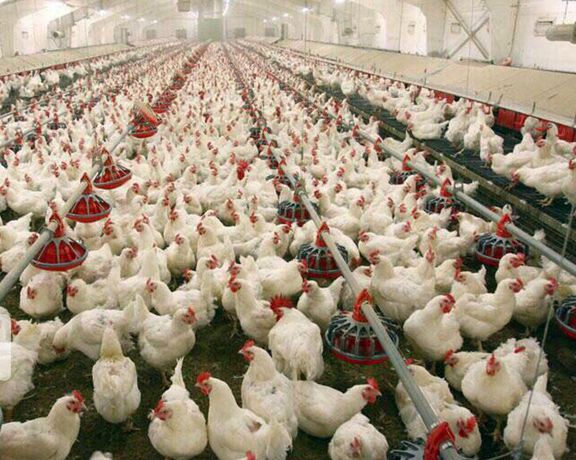
Iraq has banned the import of poultry and eggs from Iran as the country is eying to become one of the exporters of meat and avicultural products in the region.

Iraq has banned the import of poultry and eggs from Iran as the country is eying to become one of the exporters of meat and avicultural products in the region.
According to an article published in Shargh Daily on Monday, the head of Iran’s Broiler Breeders Association, Mohammad Yousefi, says as the price of animal feed has increased by sixfold, poultry farmers are forced to sell their chickens at a loss in domestic market while Iran's export markets are becoming more and more limited.
Iraq, which is Iran's second largest export market overall after China with at least three to four billion dollars of trade per year, plans to reduce its imports to support its own producers.
Hamid Hosseini, a board member of the Iran-Iraq Chamber of Commerce and Industry, told Sharq that the Iraqi Ministry of Agriculture had repeatedly protested low tariffs on agricultural imports from Iran and called on the government to increase import tariffs.
Shargh also quoted Mehdi Karamipour Moghaddam, a former secretary general of the Iran-Iraq Joint Chamber of Commerce, as saying that Iraq has set up more than 7,000 poultry farms with equipment purchased from Iran, resulting in an increase of egg production in the country from 1.5 billion in 2019 to 7 billion in the previous year. “Iraq almost no longer needs Iranian chickens and eggs, and sometimes issues short-term import permits” to meet temporary demands in the market.
Earlier in the week, Shargh reported that the sharp rise in animal feed prices has brought about a wave of bankruptcy among cattle breeders, forcing them to sell their starving or half-dead cows at lower prices to slaughterhouses.
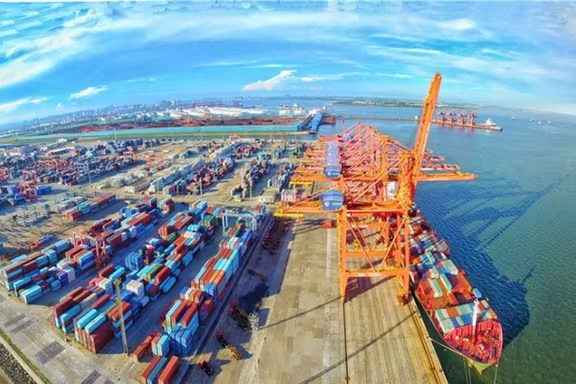
China has received a new shipment of nearly 2 million barrels of Iranian oil in the past week, according to shipping trackers, with the cargo possibly destined for state reserves.
The 260,000 ton cargo, carried by vessel Dorena which is owned by the National Iranian Tanker Corp (NITC), was discharged at Zhanjiang port, according to shipping tracking specialist Vortexa Analytics as well as US advocacy group United Against Nuclear Iran, which specialises in tracking Iranian oil flows.
A Vortexa analyst told Reuters the cargo was for state reserves. Previous imports of Iranian oil for China's state reserves have also been facilitated by NITC vessels and discharged at Zhanjiang.
The cargo would be the fourth such shipment designated for state reserves since last December and is likely to be reported by Chinese customs which is due to release detailed commodities import data for June next month.
While China has been making sporadic official imports of Iranian oil, its private refineries over the past two years have also been buying large amounts of Iranian oil despite the United States' sanctions on the country's oil exports.
Some reports, however, said that unofficial Chinese imports of Iranian oil declined by as much as 50 percent in May as competition from cheap Russian oil increased.
Volumes of China's Iranian oil purchases, passed off as oil from suppliers such as Malaysia, Oman, Iraq or the United Arab Emirates, make up roughly 7% of China's total crude oil imports.
Most of these supplies were bought by Chinese independent refiners.
Reporting by Reuters
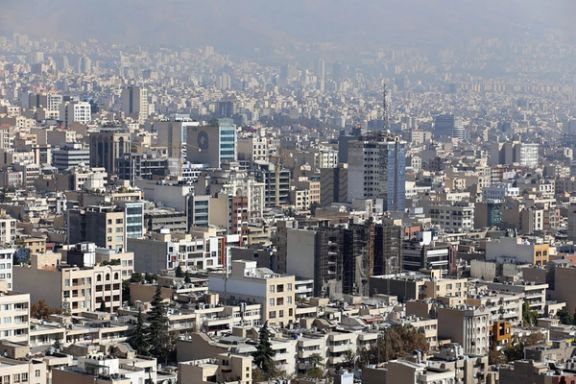
A massive rise in rental fees in Iran has pushed the government to announce a 25-percent cap on annual increases but experts say the decree cannot be enforced.
In a meeting Sunday, the heads of the three branches of the government – President Ebrahim Raisi, Speaker Mohammad-Bagher Ghalibaf, and Chief Justice Gholam-Hossein Mohseni-Ejei – approved an annual cap of 25 percent increase in rents in Tehran and 20 percent in other cities. The meeting also decided to put a double-urgency bill to control rental prices on the agenda of the parliament this week.
On Wednesday, the parliament hastily approved the general outlines of the legislation to control the rental market, as many tenants complain that asking prices are up to 100 percent higher than last year.
High rents are pushing many people to outlaying suburbs of Tehran and many families are becoming homeless amid an explosive social and political environment.
Abdollah Otadi, a board member of Tehran Real Estate Consultants Union, says rents have risen 300 percent in the last three years in the capital, with the bulk of this occurring in the last few months.
Landlords in Iran often require large sums of rental security deposits or outright additional cash payments to agree to sign a lease. Some landlords seek higher deposits to use for investment in more properties or in their businesses. Higher deposits can considerably decrease the amount of monthly rent so many tenants also prefer to use their savings as deposit to pay less rent.
In 2020, as the housing crisis reached new heights, particularly in larger cities such as Tehran, former President Hassan Rouhani’s administration came up with a plan to pay rental deposit loans to eligible tenants. According to the government scheme, banks pay the sum directly to landlords and tenants are responsible for payment of monthly interest instalments at a rate of 13 percent.
Rental deposit loans were unprecedented before the recent crisis, but now banks pay up to $3,000 in local currency as rental loans, which is a huge amount of money in Iran.
Purchasing even low-cost housing has increasingly become unaffordable to the Iranian middle class as prices continue to rise due to high inflation and devaluation of the national currency which has lost its value almost by tenfold since 2017 when former US president Donald Trump signalled his intention to withdraw from the 2015 nuclear deal with Iran.
Demand, however, is high as many with money, including banks, rush to buy property, gold or foreign currency to preserve the value of their assets in such circumstances. According to a report by the Central Bank of Iran, the number of apartments sold in Tehran from April 21-May 20 increased by 166 percent compared to the same period in 2021.
Experts say devaluation of the national currency is the foremost factor for the quick rise in real estate prices and rents in recent months as rising inflation usually manifests itself with a delay of a few months. They also say the government will not be able to enforce the 25 percent rent increase cap.
As the currency drops against the US dollar, real estate prices rise accordingly, because land and buildings are one of the safest ways to protect capital from depreciation of the currency. When housing prices rise in local currency, so do rents and government decrees cannot be effective.
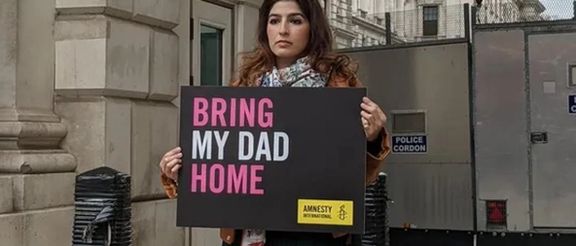
The following article is a compilation of four investigative reports on torture and abuse of prisoners in Iran, by Iran International News Editor, Shahed Alavi.
-----------------------------------------------------------------------------------------------------------------------
Informed sources have told Iran International how the Revolutionary Guard (IRGC) has been subjecting detained ecologists to physical and psychological torture.
The ecologists and environmentalists detained since 2018 have been accused of spying for foreign governments.
One of the sources who spoke to Shahed Alavi in his investigation, said IRGC interrogators had secretly filmed Tara Tahbaz, the daughter of one of the accused prisoners, Morad Tahbaz, at a café in New York and shown it to him in prison in 2018, threatening to kill Tara if her father did not agree to accept the scripted ‘confessions’ prepared by his interrogators. They also contacted Tara and made threats against her.
Dozens of the staff and activists of the Persian Wildlife Heritage Foundation (PWHF), including Tahbaz, were arrested by the IRGC in 2018 and charged with espionage and acting against national security.
Tahbaz who has Iranian, British, and American citizenship is serving a ten-year sentence on espionage charges. Many believe he is being held as a hostage to be used as leverage against the US.
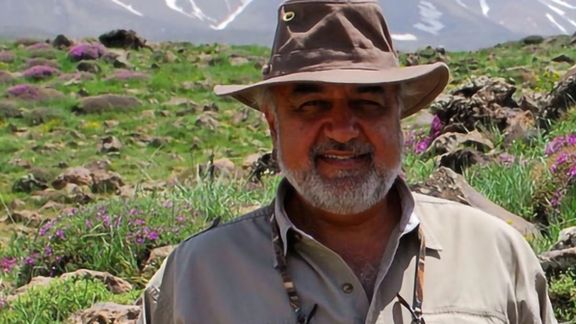
Iranian authorities made a deal with the United Kingdom government in March to free two UK nationals held in Iran -- namely aid worker Nazanin Zaghari-Ratcliff, businessman Anoosheh Ashuri, and Tahbaz -- but returned Tahbaz to prison after two days, using his American nationality as an excuse.
Torturing others to pressure a prisoner
Sepideh Kashani, one of the defendants in the case, was also subjected to severe psychological torture. Sources told Iran International that the IRGC arrested her sister and filmed her being interrogated in a prison uniform solely for the purpose of showing the footage to Kashani to make her confess according to their script.
Kashani’s husband and co-defendant Houman Jokar, was brutally beaten and then paraded in front of her covered in blood. Jokar sustained serious injuries, including a broken head and injuries to his face when his glasses were smashed onto his face.
In copies of her letters to authorities that another defendant, Sepideh Bayani,managed to leak to BBC Persian from the notorious Evin Prison in February 2020, she said her interrogators tortured and threatened her with sexual assault for over 1,200 hours during the eight months that she was held incommunicado.
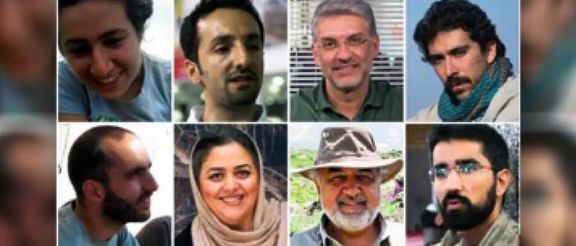
Bayani said her tortures included listening to descriptions of others being tortured and executions for hours. Her interrogators also pretended on several occasions that they were going to inject her with paralyzing or lethal substances.
Nowhere to appeal
Eight of the accused -- including Tahbaz, Kashani, Jokar, and Bayani -- are currently serving a total of 58-years in prison. In a letter to then-Chief-Justice Ebrahim Raisi in 2019 and now Iran’s president, the families of the detainees urged him to stop the IRGC’s charges against them and the use of torture in forced confessions.
The founder of PWHF, Iranian-Canadian professor Kavous Seyed-Emami, who was also arrested died under suspicious circumstances in the notorious Evin Prison in Tehran two days after his arrest. The accused who were tried behind closed doors often did not even have access to their court-appointed attorneys.
Based on interrogations by IRGC intelligence, judicial authorities claimed the accused had spied on military bases and activities in remote areas, including IRGC’s missile program, under the guise of monitoring wildlife and endangered species.
The IRGC made these claims despite the intelligence ministry’s admission that there was no evidence to support the charges. Isa Kalantari, head of the Department of Environment under President Hassan Rouhani, also confirmed lack of evidence to support such charges.
The IRGC has never presented any solid evidence for its claims. Two of the accused – Tahbaz and Niloufar Bayani – were forced under duress to make ‘confessesions’ against themselves and others but both retracted their confessions later.
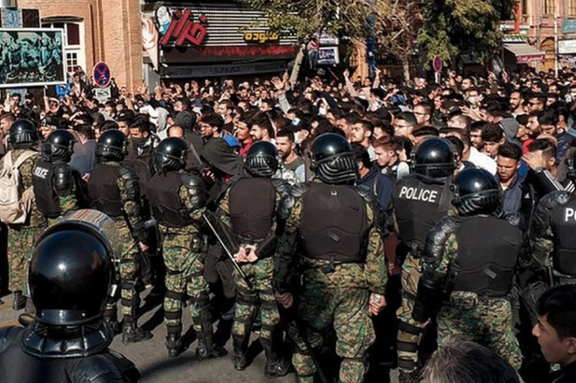
Reaching to a critical United Nations report, Iran’s High Council for Human Rights has justified capital punishment in terms of “cultural diversity.”
The council, which is part of the Iranian judiciary, said in a statement that a report by UN Secretary General Antonio Guterres, which is to be presented to the UN’s Human Rights Council meeting in its 50th regular session from June 13 to July 8, 2022, was politically motivated. The council criticized the UN for not consulting Iran during the report’s preparation.
Kazem Gharibabadi, secretary of the council, tweeted earlier in the week that the report was “copy-pasting the unsubstantiated allegations churned out by Javaid Rehman” and that it “tarnishes the UN credibility.” Rehman, a British-Pakistani law professor, has been the UN Special Rapporteur on human rights in Iran since 2018.
In his report submitted June 16 – covering June 11, 2021 to March 20, 2022 – Guterres expressed concern over excessive force used against dissidents and protestors, a high number of executions, and arbitrary arrests of activists and journalists.
The council said Iran had “provided detailed and reasoned comments and arguments regarding each paragraph and the allegations made in the previous reports of the Secretary-General and the Special Rapporteur.” The authors had paid little attention to Iran’s input, the council asserted, with Tehran’s comments “minimally reflected in the final report.”
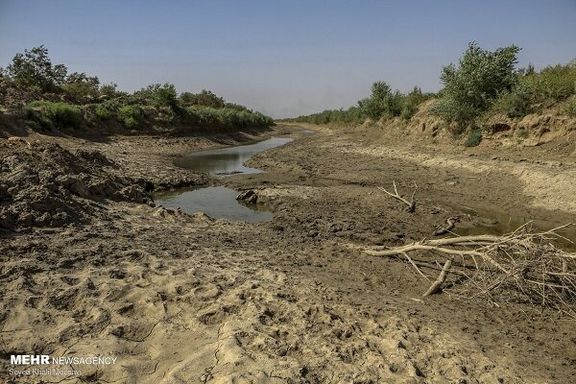
The Dez River in southwestern Iran is drying up as the temperature in several cities across Khuzestan province has risen to above 50 degrees Celsius or 122 F.
According to the Meteorological Organization of Iran on Tuesday, temperature in the city of Abadan hit a staggering 52.2 degrees Celsius – or about 126 degrees Fahrenheit – a new record for the city and the province for June temperatures for the first time in 70 years, when the city’s weather station was established.
Factoring in the humidity in the province, it is practically impossible to determine how hot it actually feels as the weather cannot fit on the heat index (HI) -- that combines air temperature and relative humidity.
The heat wave in Khuzestan follows reports about a new wave of drought in the province.
The flow in downstream areas of the Dez River, which is a 400-kilometer-long tributary of the Karun River, has decreases drastically, alarming environmental activists and villagers.
In 2021, large-scale water protests took place in two important provinces, Khuzestan and Esfahan, with several people killed and hundreds injured by security forces.
Iran has been suffering from drought for at least a decade and this year officials are warning of a further decrease in precipitation.
Authorities said earlier in the month that water inflow into Tehran’s dams decreased by about 21 percent since March compared with last year.
As drought persists, more underground water is exploited for irrigation, depleting natural reservoirs formed during thousands of years. The drought has also led to a reduction in hydroelectric power generation.